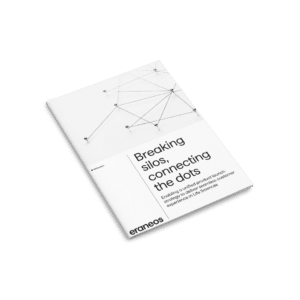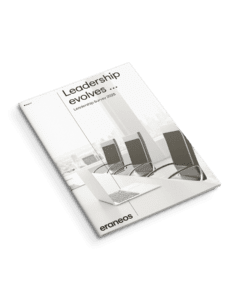Journey orchestration in pharmaceutical marketing
Eraneos is bringing a series of blogs on the topic of journey orchestration in pharmaceutical marketing. We start with talking about this concept and then dive deeper into the different aspects to consider such as omnichannel, customer journey, digital capabilities and organizational change and learning.
This is the third blog in our customer journey orchestration series. We explored what the concept is and its digital requirements for effective journey orchestration in blog #1 and #2. In this article, we examine how the omnichannel strategy relates to Journey orchestration.
Omnichannel marketing focuses on creating a seamless and integrated customer journey that adapts to the customer’s behaviour, preferences, and context. It is a strategy that involves channels such email, social media, SMS, push notifications, website, app, and more. Customer journey orchestration in omnichannel marketing takes this a step further and puts a greater effort into mapping out the customer journey. It enables businesses to deliver a personalized and consistent customer experience across all channels and touchpoints. By using omnichannel journey orchestration, a pharmaceutical company can:
- Improve customer satisfaction by putting the customer at the center. This is achieved by catering to their personal and individual needs and expectations from the company and or brand, resulting in improved brand reputation and advocacy.
- Make better data-driven decisions by gaining a real view of customer behaviour and preferences. Omnichannel marketing leverages data from various sources to provide a more personalized experience for customers. By understanding customer preferences and behaviour across channels, you can deliver personalized, tailored content, recommendations, and offers at each touchpoint.
- Reduce churn by enhancing customer engagement e.g., in patient support programs or educational programs
- Measure the impact of the campaign. Omnichannel marketing tools and analytics allow you to measure the effectiveness of your campaigns and customer interactions across channels. This data-driven approach helps you continually optimize your customer journey orchestration efforts.
To achieve omnichannel marketing success, businesses need to use tools that can help them collect, unify, and enrich customer data from various sources and channels. This data enables the design, execution, and optimization of personalized journeys across various touchpoints. This empowers you to create, manage, and deliver pertinent and captivating content tailored to each customer’s journey. Ultimately you can measure, analyze, and improve the performance of these customer journeys. These tools are essential for orchestrating customer journeys that are dynamic, adaptive, and responsive to each customer’s unique situation and goals. For more information on this specific topic, I refer you to blog #2 ‘Digital Requirements for Journey Orchestration’.
In summary, omnichannel marketing is the strategy and framework that enables businesses to deliver a seamless and consistent customer experience across multiple digital and physical touchpoints. It enhances the effectiveness of customer journey orchestration by ensuring that interactions are coordinated, personalized, and aligned with the customer’s preferences and context, leading to improved customer satisfaction and business outcomes. It’s an interdependency: Customer journey orchestration needs a well-thought-through omnichannel strategy, but the omnichannel strategy gets better execution and results with customer journey orchestration!



